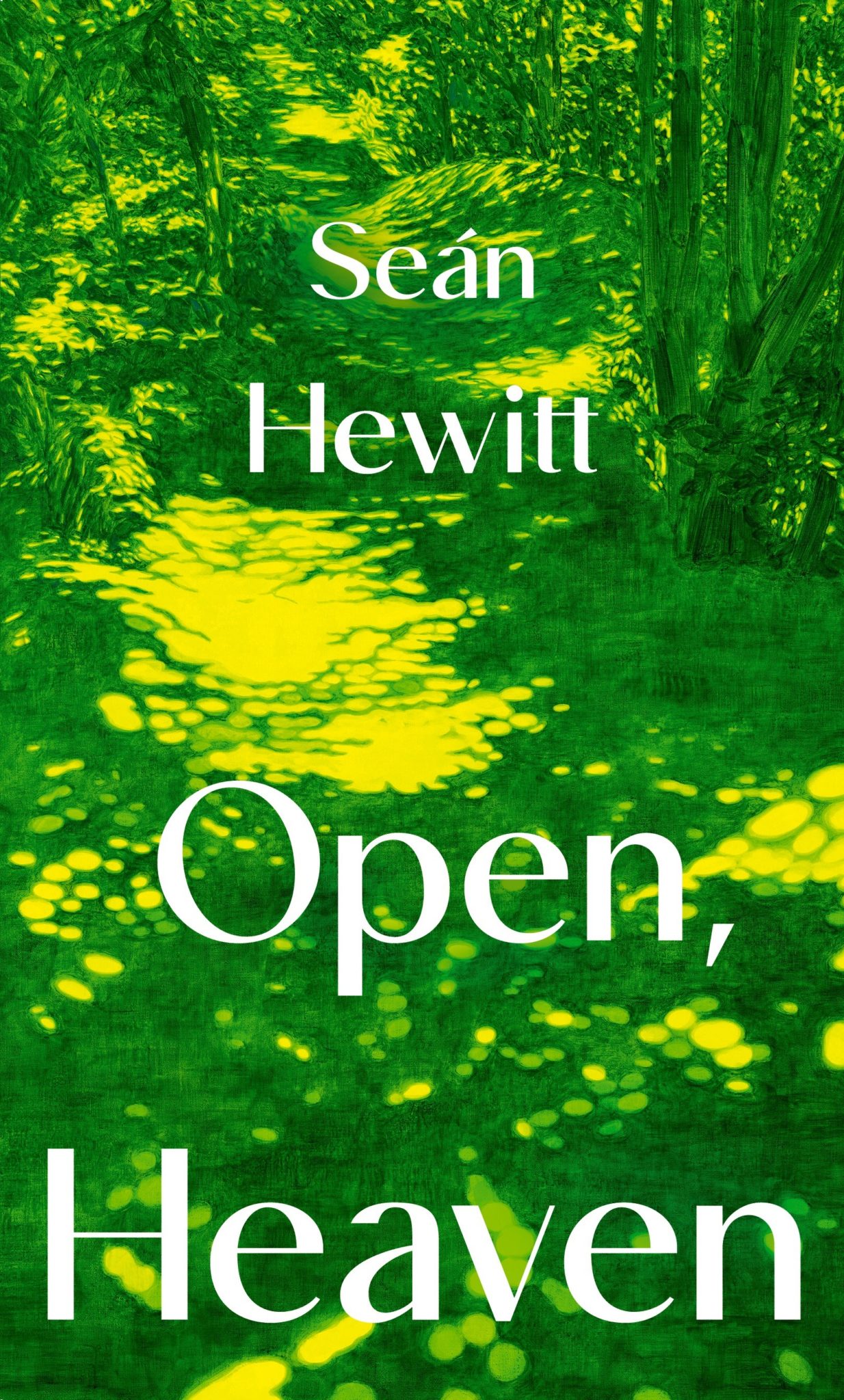- Opinion
- 24 May 25
Seán Hewitt: "When a lot of people fall in love, the line between what’s real and what’s not kind of blurs a bit"

Seán Hewitt discusses his superb debut novel Open, Heaven, tormented relationships, transgressive author Dennis Cooper and Brideshead Revisited.
Seán Hewitt’s debut novel, Open, Heaven, focuses on an Irishman, James, who returns to his hometown and reminisces about the boy, Luke, he fell in love with as a 16-year-old – a love that ultimately tormented and completely upended his life.
A literary professor at Trinity College, Hewitt has a background as a poet, and there is a notably lyrical quality to the prose in the book.
“It’s become kind of subconscious at this point,” considers the softly spoken 35-year-old author, who was raised in Warrington, but whose mother is from Limerick. “When I’m writing and revising a poem, it’s often how it sounds that’s important to me. If I pause on a word, it’s usually because it doesn’t quite fit the sound of the poem, so I find another word. Because that’s how I edit poetry, it’s also how I edited the prose in the novel.
“I hadn’t really realised this until I was reading the first page for a podcast, and the interviewer was asking me, ‘Why did choose this word? Why that word? Oh, you have a lot of commas.’ I said, ‘Well, it just sounds right.’ Most people maybe don’t edit novels to sound right, because they’re not meant to be read aloud necessarily. But I’m reading aloud as I write, so it probably tends towards a kind of lyrical flow.”
Hewitt’s acclaimed 2023 memoir, All Down Darkness Wide, found him reflecting on a painful love affair, when he fell in love with a troubled young man who developed severe depression. Does he see parallels between that story and Open, Heaven?
“I started off the memoir as if I was writing a novel,” he explains. “That was my first attempt to write a novel – and I realised I was the main character! So I carried on and then I was like, ‘Okay, the material of this book I’m working on is coming from real life, so it’s just gonna be a memoir.’ In fact, it was only the American publishers who included the subtitle ‘A Memoir’, because they like to do that. But I had asked everyone else not to have a subtitle.
“With this one, it was like, ‘Take two – you’re actually going to write a novel this time.’”
Does it draw on the same relationship as his memoir?
“This one is fictional,” says Hewitt, “but I say that with the proviso that I think every novel is also real in many ways. Of course, when I was a teenager, I fell in love, and it’s not the same story. But in order to put yourself in the mindset of a teenager in love, you do find yourself thinking back and trying to capture some of the real life emotional feel.
“In this book, I was interested in unrequited love, or love that is a sort of spur towards fiction, in a way. When a lot of people fall in love, the line between what’s real and what’s not kind of blurs a bit. Because it’s also mixed in with what you hope is real! You hope someone loves you back, or that this might come true.”
Hewitt is on a roll.
“So you’re willing it into being,” he continues, “which is a sort of creative act. I was interested in what happens if it’s almost entirely that creative act of making up being in love. And almost being tortured by not being able to decode what someone else is doing or thinking.
“There were lots of times I spoke to friends while I was writing this book, who were dating and going, ‘Just read that text for me. What do you think they meant by that last word?’ Or, ‘There’s only one kiss at the end of this one!’ So I was interested in what I thought was a love story, but it’s all contained within the head of one person.
“As a reader, you’re also put into the position of having to decode what the other characters are thinking and doing.”

I mention parallels with Dennis Cooper’s five-novel George Miles Cycle, a classic of modern underground literature and also a study of doomed, obsessive love.
“I’m part of a queer book club, and interestingly, the first book this month is Closer, the first book in the George Miles Cycle,” says Seán. “I’ve never read Dennis Cooper before. So I’ve been reading it, and I can see why you asked the question. I’ve not finished it yet, but it seems to be a lot about fantasy and debasement as well.”
Notorious for its graphic sex and violence, the George Miles Cycle has a real sense of punk transgression, and – like all of Cooper’s work – it’s always looking to disturb and unsettle the reader.
“I really enjoy it,” says Seán. “I think there has to be room in any art-form for uncomfortable feeling.”
Perhaps the situation is improving, but we definitely went through a strange period in literature, when I found myself often discussing with writers how a lot of transgressive classics – from Bret Easton Ellis’s American Psycho to JG Ballard’s Crash – would lately struggle to get published.
“It’s a weird thing,” Hewitt considers. “Especially in a novel like mine, where the narration is first person, people will often attribute the thoughts of that character to you. I don’t think my book is transgressive in the way of Dennis Cooper, but there are places where the main character has unpalatable thoughts about how he maybe wants boys to treat him. Or he wonders if it would be easier to be a girl, but then he’s kind of jealous of girls.
“He’s in a mess psychologically, in terms of trying to figure out where he fits in. Because his imagination is in overdrive and he’s full of hormones and everything. There are versions of the story where you could edit out all the unpalatable things – but I think teenagers are fundamentally unpalatable!”
He further considers the subject of transgressive writing.
“There are moments when you read queer literature from the ’80s and early ’90s, and you can feel that almost every book is pushing at something,” says Seán. “There’s a definite sense of the books trying to make progress, whether through transgression, or just pushing into new subject matter. I think that’s how steps get taken forward in literature.
“I don’t know if you’ve ever read Detransition, Baby by Torey Peters. I think she was doing something really interesting with that book, and she has a new book out at the moment, called Stag Dance, which I haven’t read yet. So I think there are places where transgressive literature is happening. I had to put down Garth Greenwell’s Cleanness at one point – I wasn’t as shocked by Dennis Cooper as I was by Cleanness.”
I have to read this.
“Yeah! It’s a series of interlinked stories, but they all have the same characters and it’s a novel. But the second story I had to put down and pick up again! So I think there are transgressive things happening.”
Indeed there are. Notably, the brace of novels – The Discomfort Of Evening and My Heavenly Favourite – by the young Dutch author, Lucas Rijneveld, are among the most exciting and boundary-pushing in recent times.

Seán Hewitt By Abigail Ring
Finally, in the yearning way it reflects on the headiness of youth, Open, Heaven also reminded me of Evelyn Waugh’s classic novel Brideshead Revisited. Telling the story of World War 2 army captain Charles Ryder and his youthful friendship with the aristocratic Flyte family, Brideshead remains enduringly popular, in part because if its lavish 1981 TV adaptation, starring Jeremy Irons.
Among the fans of the series was future Pulitzer winner Donna Tartt, author of The Secret History and The Goldfinch, who – along with a cohort of her friends at Bennington College in Vermont – even took to dressing like the sharply suited lead characters.
“It’s interesting you say that,” says Seán. “I teach the book every year, so it’s been in my head. In fact, there’s a couple of books I was re-reading recently for a radio programme I’m doing – they ask you to have three books that influenced you. I don’t have conscious influences at the time; whatever I’m reading tends to come through by osmosis.
“In Brideshead, it’s bookended by him going back to the house, and it’s now a military encampment. He goes to the chapel and that kicks everything off. There’s a similar structure in my book – it’s not quite a bookend, but there is that idea of returning, seeing something, and then going back in time and telling the story.
“So I think that was in there, and I also just love Brideshead Revisited – it’s so good!”
Open, Heaven is out now.









